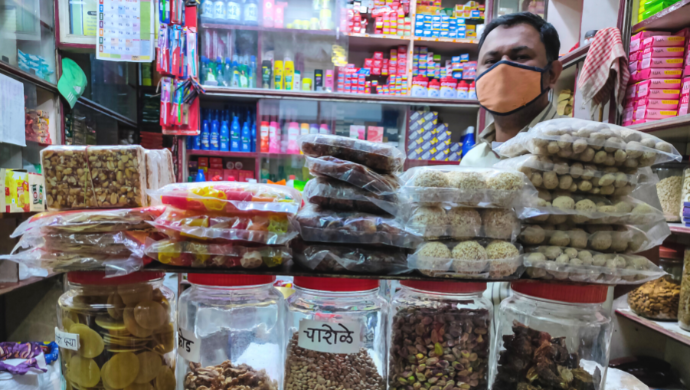[e27] Why kirana stores are central to India’s digital opportunity

Image credit: 123rf-amberkhane1986
The COVID-19 pandemic showed us just how important kirana stores are in India. Rather than abandoning their neighbourhood shops in favour of online deliveries, Indian consumers told us they bought more groceries from these local shops during lockdowns. They also said they had no plans to stop shopping there in the future.
We can now say emphatically that corner shops remain integral to Indian society and the overall retail ecosystem. Yet these independent, family-run stores face challenges in their day-to-day operations. We must therefore improve the efficiency of these neighbourhood shops and safeguard the long-term future of the network.
As India embraces digitalisation, there is an opportunity to use technology in a way that benefits kirana owners, local communities and the national economy.
The critical role of the kirana
My firm, Flourish Ventures, recently partnered with research firm 60 Decibels and our portfolio company ApnaKlub, a B2B wholesale platform, to survey shop owners and customers across key emerging markets.
We found that India’s kirana stores, and shops like those in Indonesia, Egypt and Brazil, are indispensable to their neighbourhood communities. They offer convenient shopping, access to fresh food and an assortment of other services that also includes credit.
In India, these small merchants are also important to our national economy. More than half of Indians buy all their groceries in kirana stores, and 90 per cent of the overall grocery market, US$600 billion in India, runs through them.
Among surveyed kirana customers, we found 86 per cent make purchases at least once per week at their local shop, while 30 per cent shop there every day.
These numbers are especially enlightening in the wake of the COVID-19 pandemic, which has accelerated the use of online shopping globally as people sought home delivery or contactless payment options.
Instead of putting local shops out of business, the pandemic has reinforced the importance of India’s kirana network.
Our research indicates that 84 per cent of India’s consumers bought more groceries, not less, from kirana during the COVID-19 lockdowns, with 92 per cent of survey respondents saying they plan to use kirana as much or more in the future.
Trust and technology
Although pervasive, kirana stores are a highly disaggregated market. There’s little commonality of ownership, and they lack the economies of scale that hypermarkets or e-commerce can leverage.
What kirana stores do command is trust.
In addition to proximity, 42 per cent of surveyed shoppers told us they value longstanding relationships; 43 per cent reported good customer service was a key differentiator, and 33 per cent said they regularly make purchases on store credit.
Adding technology to that trusted base will allow shops to compete on a whole new level.
Digital disruption upends all kinds of businesses, from books to travel. Disruptors target customer pain points and create streamlined and virtually consolidated offers. Applying the same theory to kirana back offices could have a similar impact with accretive effects rather than disruptive ones.
We found some of the biggest obstacles shopkeepers face revolve around purchasing and managing inventory, or serving customers:
- 74 per cent cited issues with ordering, checking, and receiving products
- 74 per cent said they had difficulties attending to customers
- 60 per cent reported challenges with managing inventory and product placement
- 54 per cent said they lacked visibility into profits and margin
Addressing these challenges should draw a wide and lucrative customer base for digital developers. There are 12 million kirana stores across India, and they all have similar pain points. That equals scale.
Digital opportunities
Almost all shop owners use digital tools, social media, messaging, aggregator sites, and other apps, at home, so there’s little resistance for developers to overcome.
Simply helping kirana stores on the supply side is an example of where digital tools can have a big impact. Kirana suppliers are often far from the stores. Travelling to wholesalers, picking stock and bringing back inventory is time-consuming and costly for shop owners, who sometimes are sole proprietors.
That’s a lot of operations ripe for streamlining, and many non-tech middlemen have popped up to address the situation. But these transactions are highly cash-based, with limited capital available from shop owners, thereby limiting their ability to scale. And as extra links in the chain, these middlemen also increase costs and squeeze margins for the shopkeepers.
At Flourish, we have invested in ApnaKlub, an online wholesale platform that consolidates FMCG suppliers and integrates logistics, inventory management and point-of-sale systems. Just as an ecommerce platform aggregates retail products for consumers, ApnaKlub does it on a wholesale level for shopkeepers.
Capturing sales data also helps stores and suppliers optimise shelf space and offer faster-moving goods, thereby bolstering revenue. The end result is greater variety for consumers and better margins for shop owners.
Financial services are also embedded into the app, eliminating cash-advance needs and further supporting small players in the ecosystem while increasing sales volumes.
The scale of opportunity to digitise our corner shops is enormous. There are many undeveloped avenues where technological innovation can further advance productivity and economic resilience for India’s small businesses, which directly translates into more jobs with higher skills for all of India’s families.
By keeping kirana at the centre of their communities, this technological dividend can bring wide benefits across India.